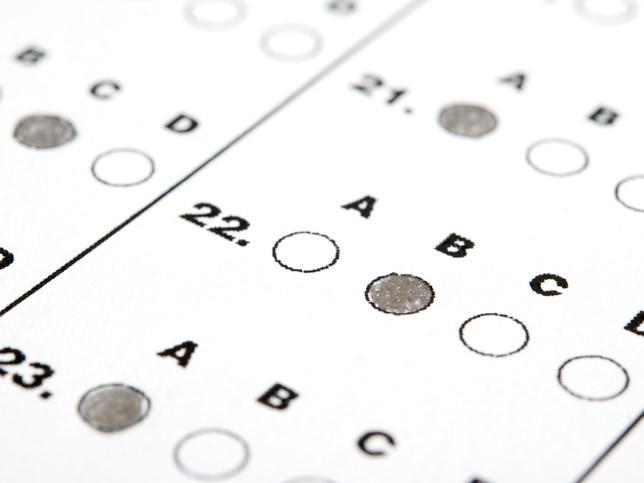When I was an undergraduate, I took a moral philosophy class that was notorious for being extremely difficult. On the first day of class, the professor announced, with great pride, that he had given out only three As in his 18 years of teaching. When I enrolled, I was worried about what the class would do to my grade point average (GPA), and thus my chances of getting into graduate school. So, I also decided to take a creative writing class that a friend (who had taken it the previous year) told me was “so easy that to get anything other than an A you’d have to be actively trying to do poorly”. I didn’t expect to learn much in creative writing, but I figured it was worth it to keep my grades up.
Ironically, I ended up with an A in the moral philosophy class and a B in the creative writing class – but the story nonetheless illustrates a fundamental tension in academia. Students come to college to learn, but they also come to college because a degree is required for a wide range of careers. Universities serve both to educate and to credential. Unfortunately, these two goals are often in direct conflict. Many students are afraid to challenge themselves, explore new topics or otherwise risk a performance that might damage their GPA and subsequent job prospects.
In addition, the credentialing side of higher education can serve to undermine motivation and prevent learning for learning’s sake. Learning is inherently fun. But classic psychology research on overjustification effects has shown that attaching rewards and evaluations to otherwise entertaining activities can douse motivation. More recent work has shown that when we focus on why we enjoy an activity (learning is fun!), we persist more and achieve better outcomes than when we focus on the external benefits we might attain (good grades or a job).
Grades also serve as a significant source of stress for students, and given the well-established link between mental health and academic success, this means that the act of grading can be detrimental to student learning. The pressure associated with grades also incentivises cheating, which undermines both student learning and the very credentialing that leads students to cheat in the first place.
Perhaps the costs to student learning would be worth it if the benefits of credentialing were large enough. Unfortunately, it isn’t clear that universities do a good enough job of credentialing to reap those benefits.
It’s no secret that when you graduate from law school in the US, you can’t practise law until you pass the Bar exam. Physicians, dentists, pharmacists and architects all take licensure exams before they can practise their professions, too. The need for these external credentials is a tacit acknowledgement that a degree from a professional school is insufficient as a credentialing device. It is possible to complete a professional school curriculum without being prepared to take on professional responsibilities – as evidenced by the fact that the California Bar exam passage rate routinely falls below 50 per cent despite the three years of training that law schools provide.
Undergraduate degrees are even less informative. While nearly all law schools require the same core curriculum (courses in constitutional law torts, contracts and more), undergraduate curricula are much more varied. Both “advanced quantum mechanics” and “physics for poets” are weighted the same in calculating GPA, and both may fulfil the same general education requirement.
Moreover, many schools offer multiple sections of popular courses; depending on which section you take, you may have either a full professor or a first-year PhD student as your instructor. The quality and even the content taught can vary substantially within the same school, within the same semester, making transcripts nearly impossible to interpret.
This is exacerbated by the fact that grades in many classes are unreliable, and in plenty of cases not particularly valid. Grading is often outsourced to graduate students or advanced undergraduates with minimal training, and very few faculty have any formal instruction in how to design valid assessments. As a result, transcripts are not particularly informative credentials.
Given all this, it may be time to think about how to divorce education from credentialing. To some degree, this is already happening. Most professional schools require standardised tests (MCATs for medicine, LSATs for law, GREs for PhD programmes) as objective criteria to evaluate student preparedness. Many large firms, such as McKinsey Consulting and Google have specialised interviews that supplement transcripts. Jobseekers hoping for roles in civil and foreign services have to pass exams, as do actuaries, realtors and even morticians.
If testing companies such as ETS or Kaplan were to create college-level, skills-based, mastery exams, they could remove the onus of credentialing from universities and allow schools to focus on the primary mission of educating students.
One shortcoming of external credentialing is that it could lead colleges to teach to the test, but there are several reasons this might not be a major problem. First, we don’t currently see colleges teaching to the Google or McKinsey interviews. Second, teaching to the test isn’t necessarily a bad thing – if a test accurately measures the skills that students are seeking, then teaching to the test can be the same as teaching the skills that students want to learn. Third, it isn’t clear that what we’re currently doing is any better given that many students avoid intellectual risks to preserve their GPAs. Even if students take a few classes focused on passing post-college exams, they would still have free electives to intellectually explore topics they would be too risk-averse to consider today.
Divorcing education from credentialing not only allows for more accurate credentialing, it would give colleges more creativity and flexibility. Different models can be developed to cater to the educational needs of different types of students, with external credentialing serving the role of identifying whether those needs have truly been met, which curricular innovations are effective and whether students are prepared for post-baccalaureate life.
Danny Oppenheimer is a professor jointly appointed in psychology and decision sciences at Carnegie Mellon University. He researches judgement, decision-making, metacognition, learning and causal reasoning, and applies his findings to domains such as charitable giving, consumer behaviour and how to trick students into buying him ice cream.




comment